Why you can trust Tom's Hardware
Comparison Products
We pitted the WD Black P50 Game Drive against some of the best external SSDs, including the SanDisk Extreme Pro v2, Samsung X5, Sabrent Rocket XTRM-Q, LaCie Rugged Pro, as well as some cheaper options including the SanDisk Extreme Pro, LaCie Rugged SSD, Samsung T7, and Crucial X8.
Game Scene Loading - Final Fantasy XIV
Final Fantasy XIV Shadowbringers is a free real-world game benchmark that easily and accurately compares game load times without the inaccuracy of using a stopwatch.
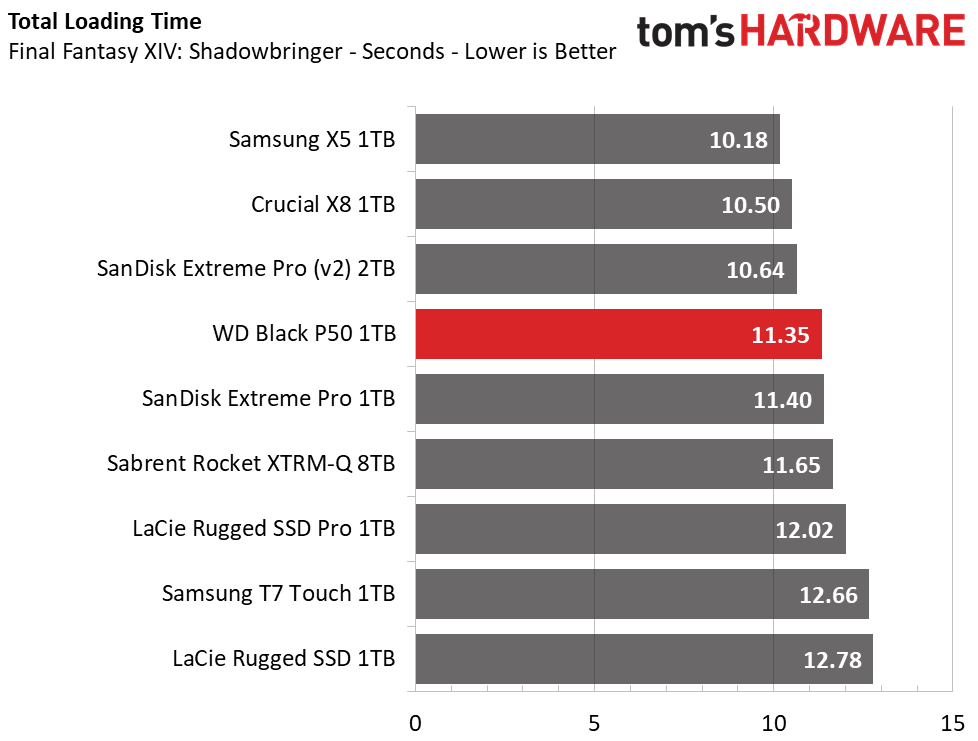
WD’s Black P50 Game Drive delivered responsive game load times in its Final Fantasy XIV benchmark run, outperforming both Sabrent’s Rocket XTRM-Q and LaCie’s Rugged SSD Pro as well as the majority of USB 10Gbps devices. It was, however, outperformed by SanDisk’s Extreme Pro v2, as well as the Samsung X5 and Crucial’s X8. All those drives boast slightly faster small file read access speeds.
Transfer Rates – DiskBench
DiskBench is a storage benchmarking tool that allows us to test the transfer or copy performance of a storage device with real data. We test external drives with three file transfers that consist of 25GB of photos (10GB of jpgs and 15GB of RAW photos), 50GB of movies, and 25GB of documents. First, we transfer each folder from a 1TB NVMe SSD to the external device; then we follow up by reading a 3.7GB 7-zip file and a 15GB movie back from the device.
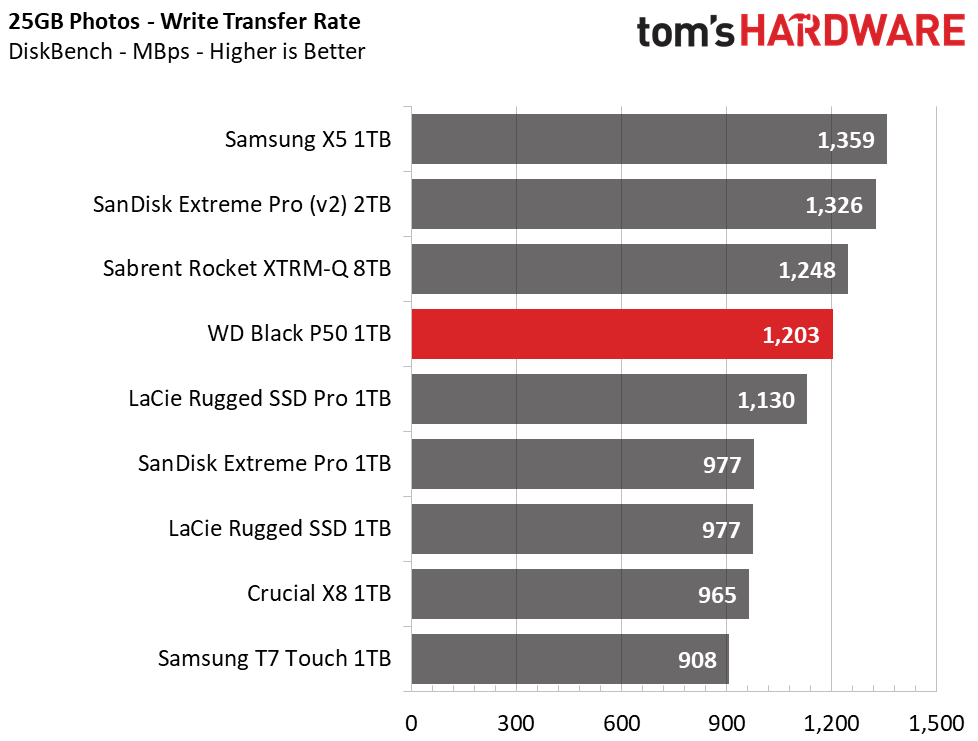
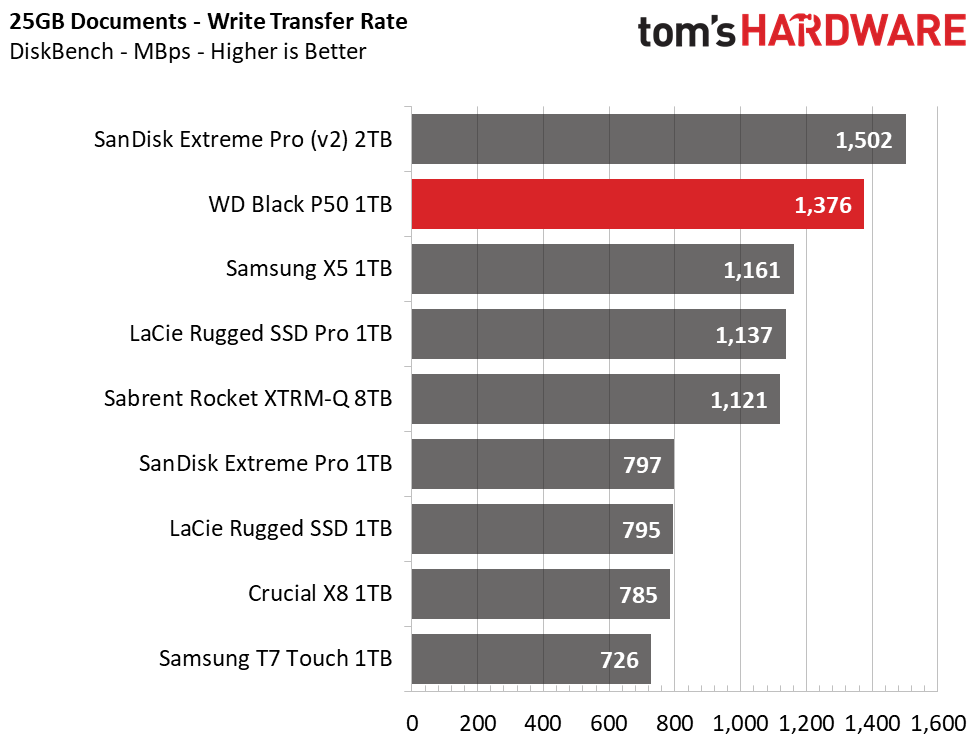
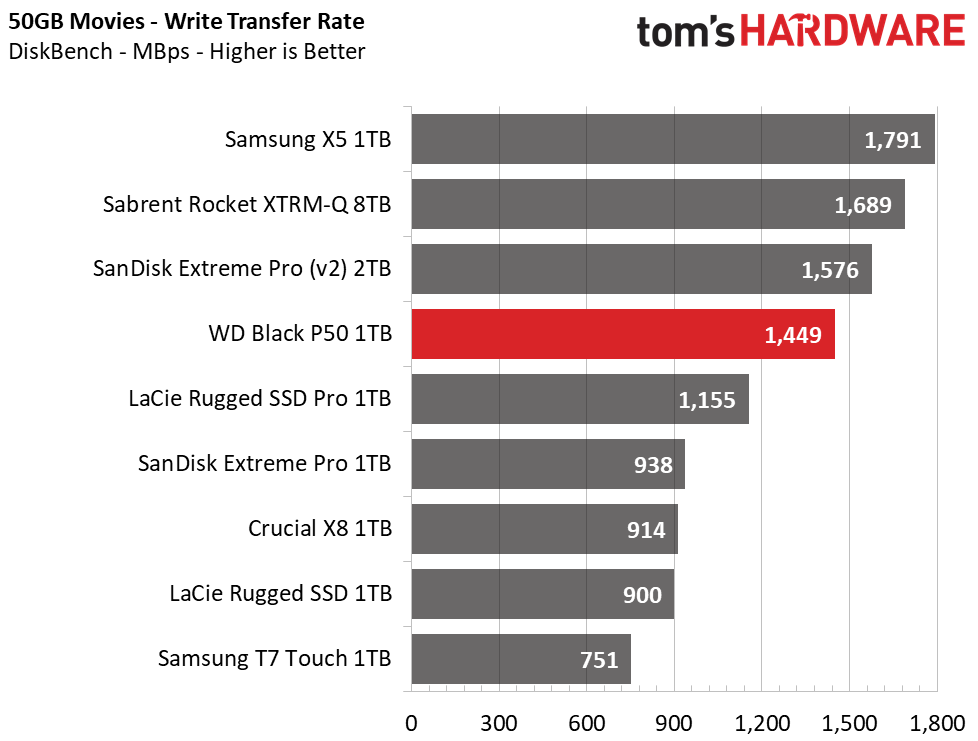
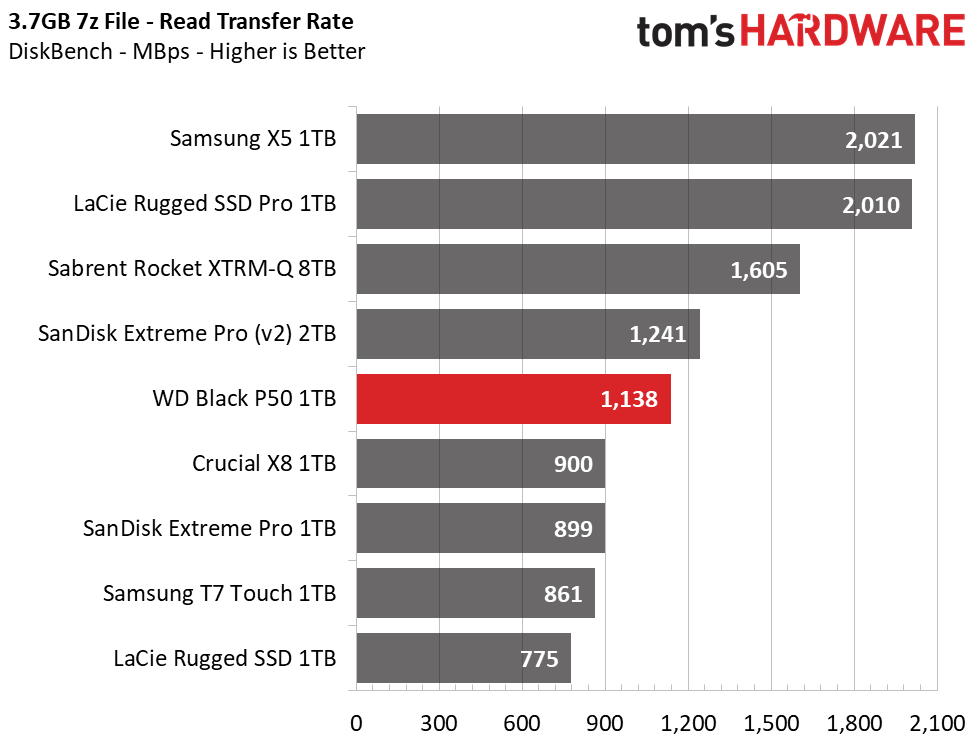
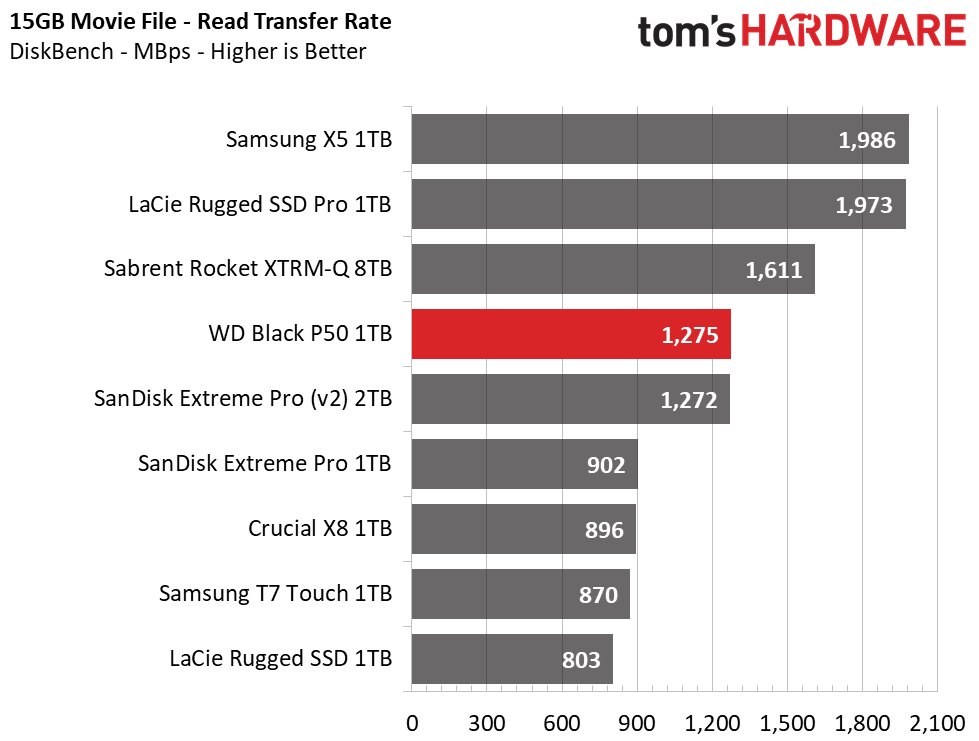
WD’s Black P50 Game Drive transfers files quickly, delivering competitive performance that even exceeded some of the Thunderbolt 3 competition under a few of the transfers. SanDisk’s Extreme Pro v2 performed better than the P50 Game Drive, but it is also a 2TB model with a larger SLC cache. At 1TB, the P50 easily outperforms all of its 10 Gbps competition.
Trace Testing – PCMark 10 Storage Test: Data Drive Benchmark
PCMark 10 is a trace-based benchmark that uses a wide-ranging set of real-world traces from popular applications and common tasks to measure the performance of storage devices. To test drives that store files rather than applications, we utilize the Data Drive Benchmark.
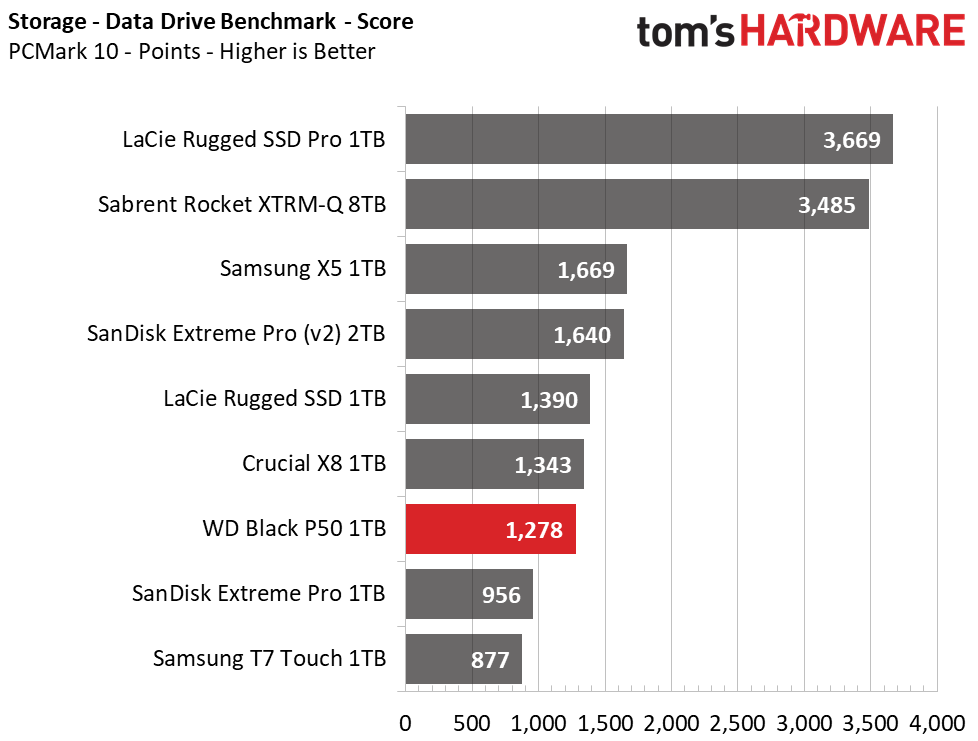
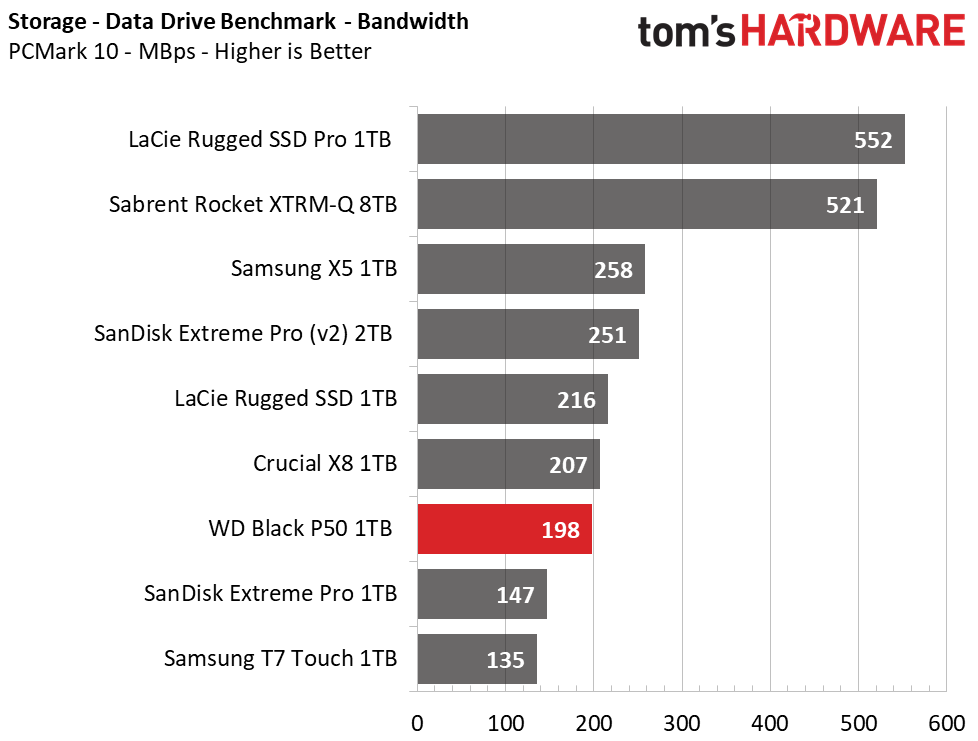
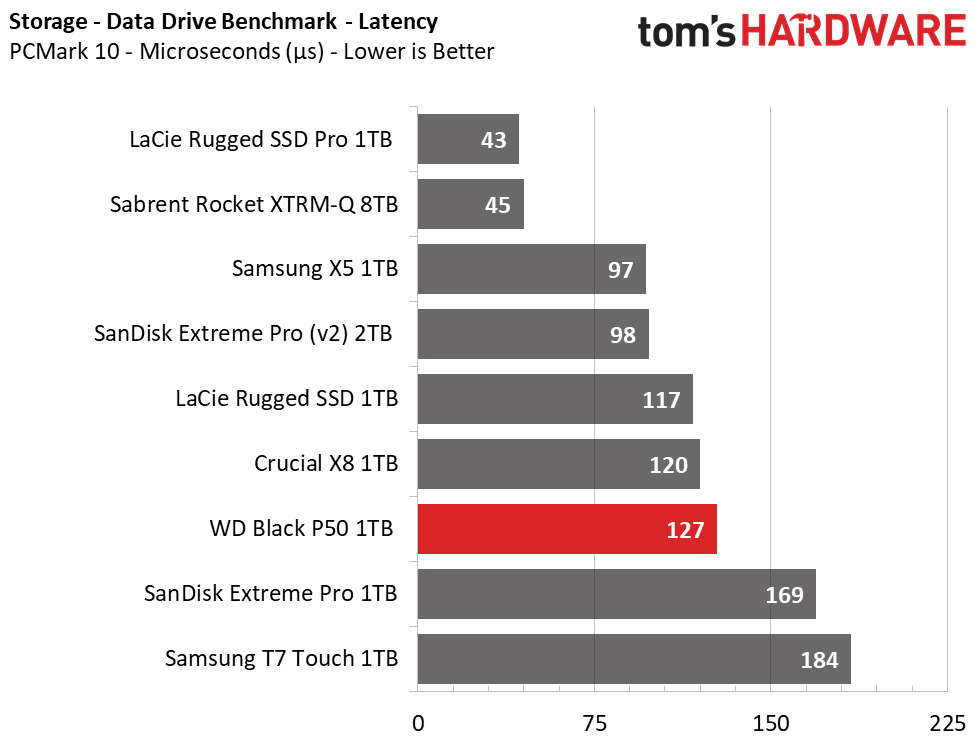
Although the USB 3.2 Gen2x2 interface affords WD’s Black P50 Game Drive high bandwidth, that benefit is not always apparent in average use. For applications, the flash’s ability to respond to a request quickly at low latency is just as important.
Get Tom's Hardware's best news and in-depth reviews, straight to your inbox.
WD’s Black P50 Game Drive outperforms Samsung’s T7 Touch and SanDisk’s Extreme Pro, but scores low on PCMark 10’s Data Drive Benchmark charts. It essentially matches the Crucial X8 and LaCie Rugged SSDs’ quickness, but can’t come near the SSDs that thrive off of their low-latency Thunderbolt 3 interface.
Synthetic Testing - ATTO / iometer
iometer is an advanced and highly-configurable storage benchmarking tool while ATTO is a simple and free application that SSD vendors commonly use to assign sequential performance specifications to their products. Both of these tools give us insight into how the device handles different file sizes.
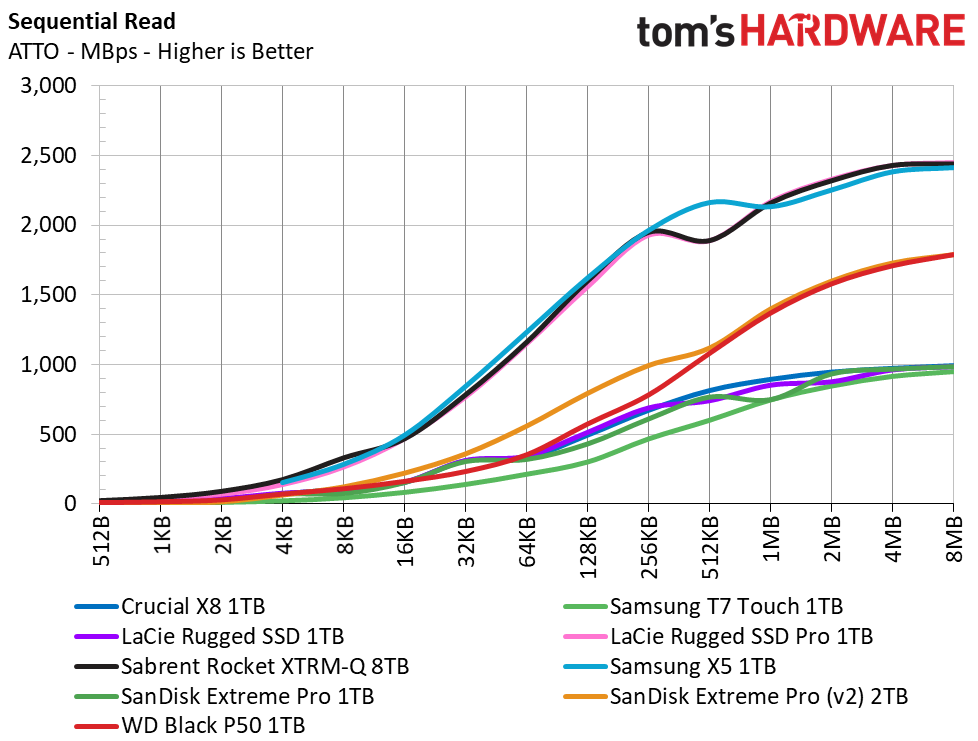
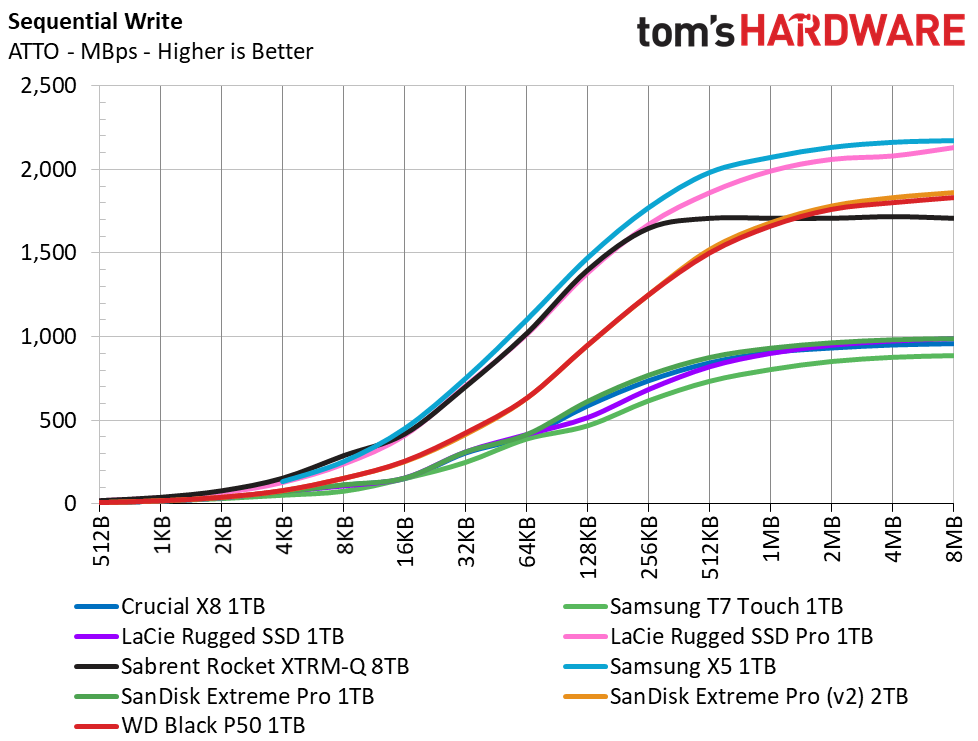
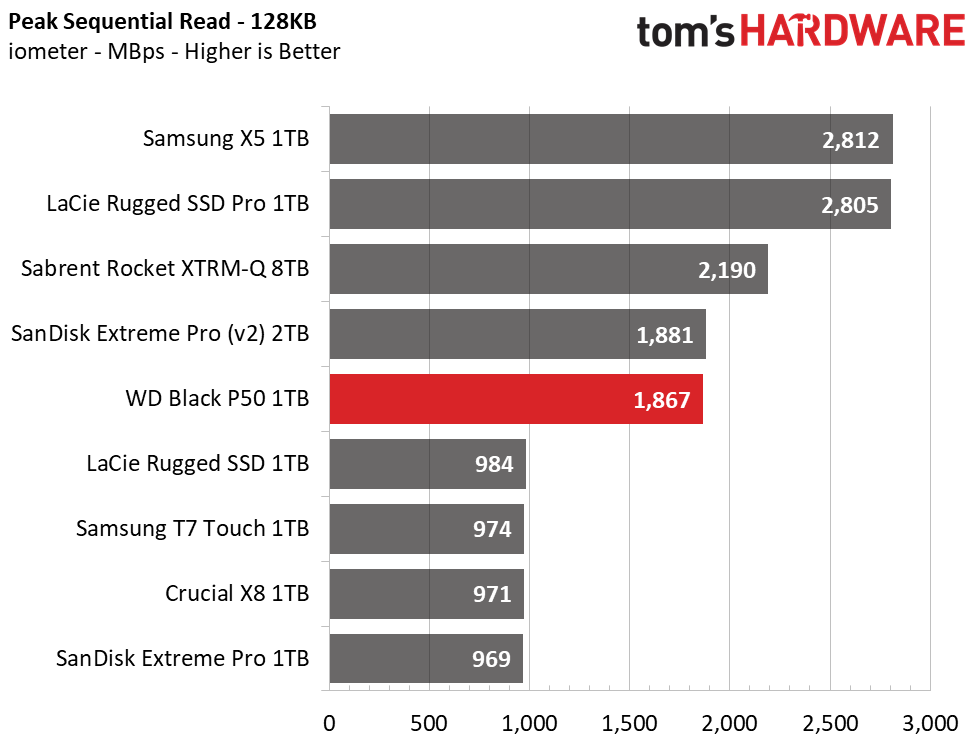
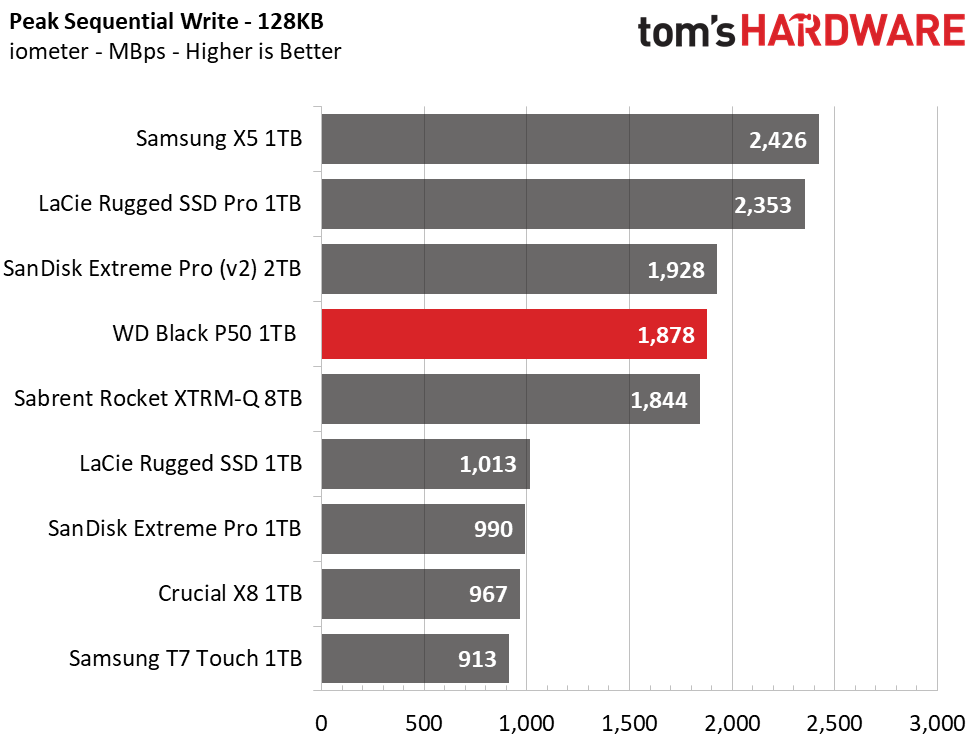
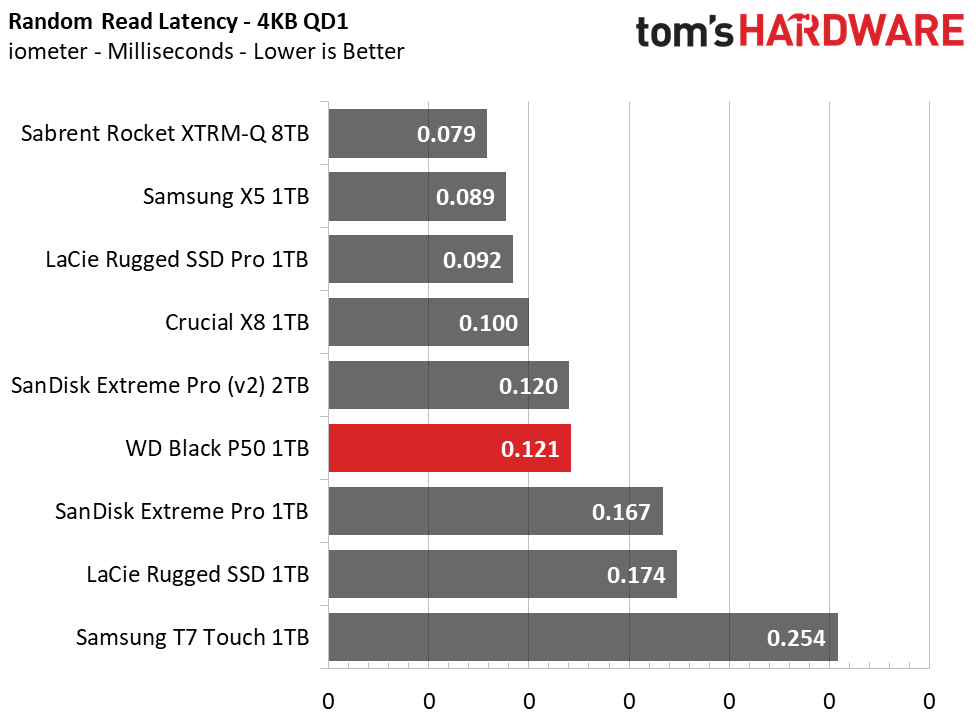
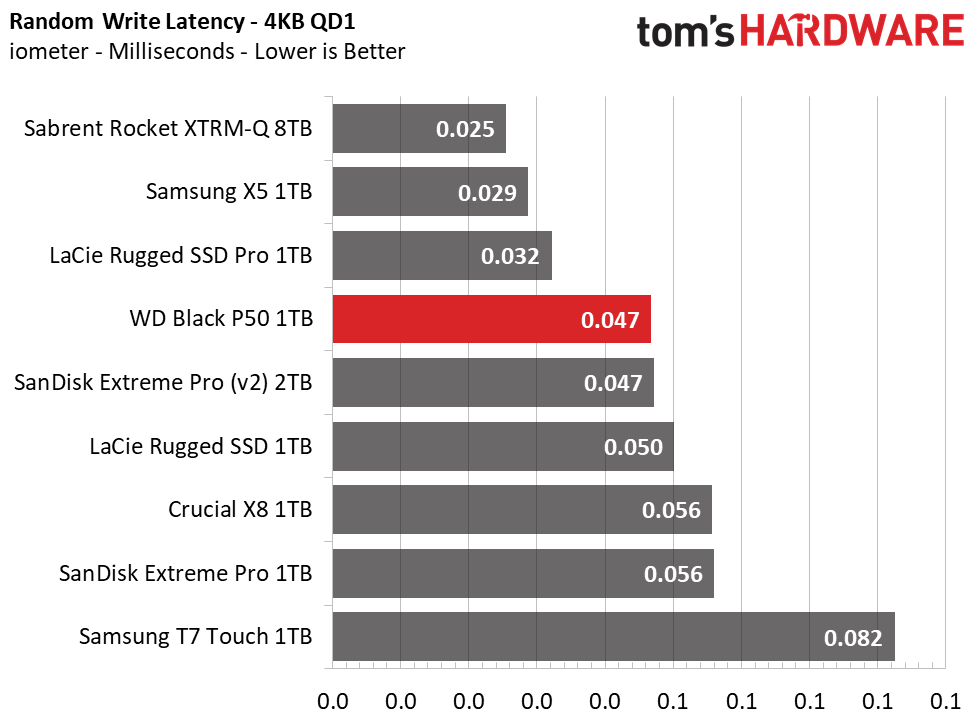
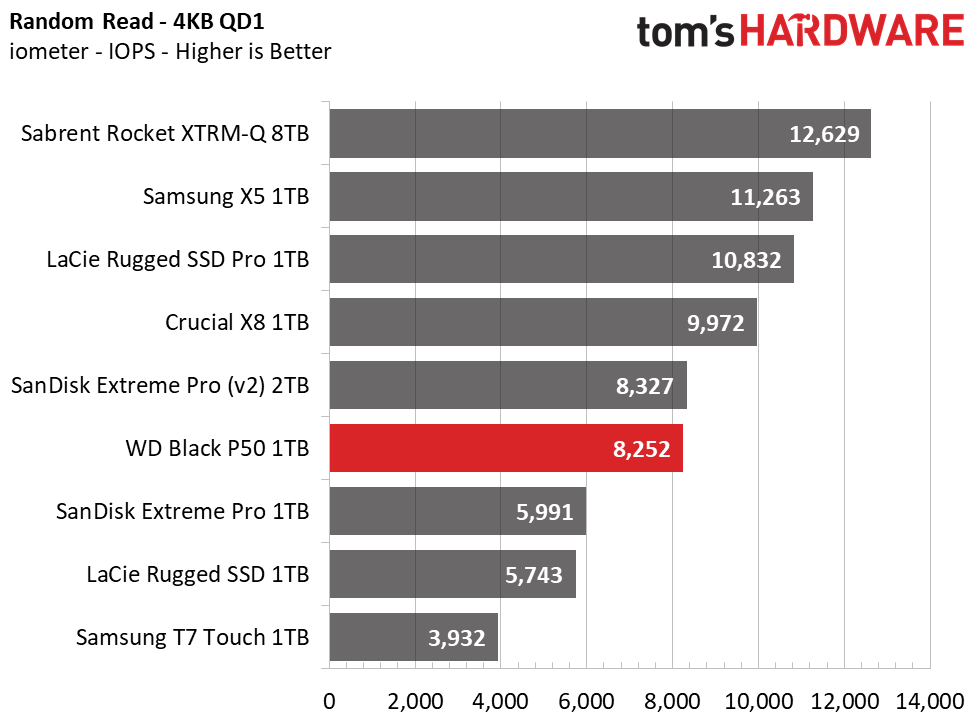
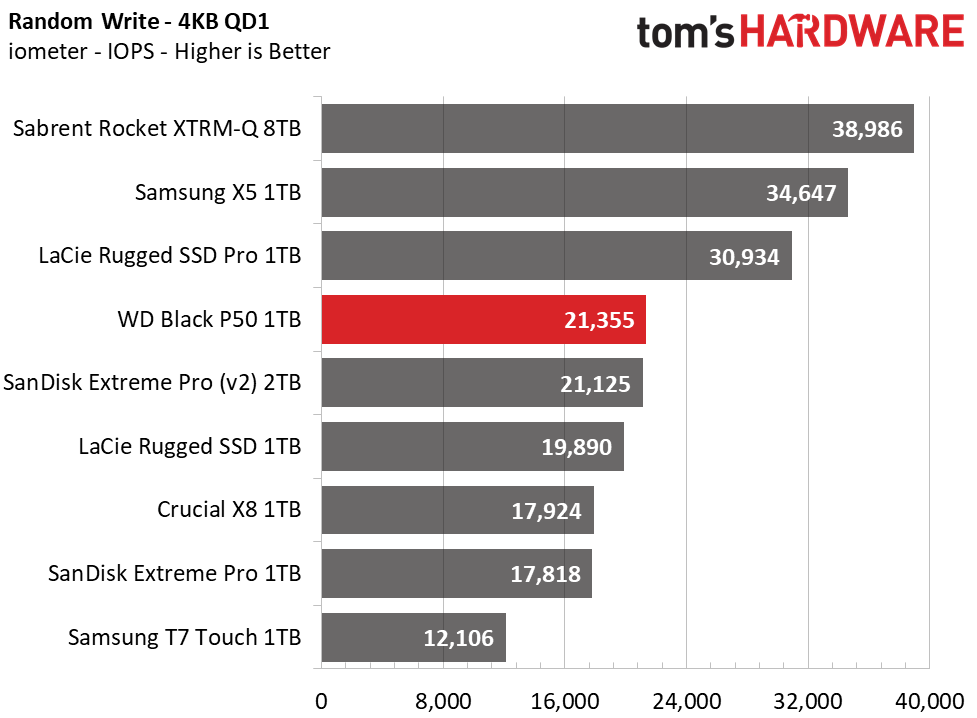
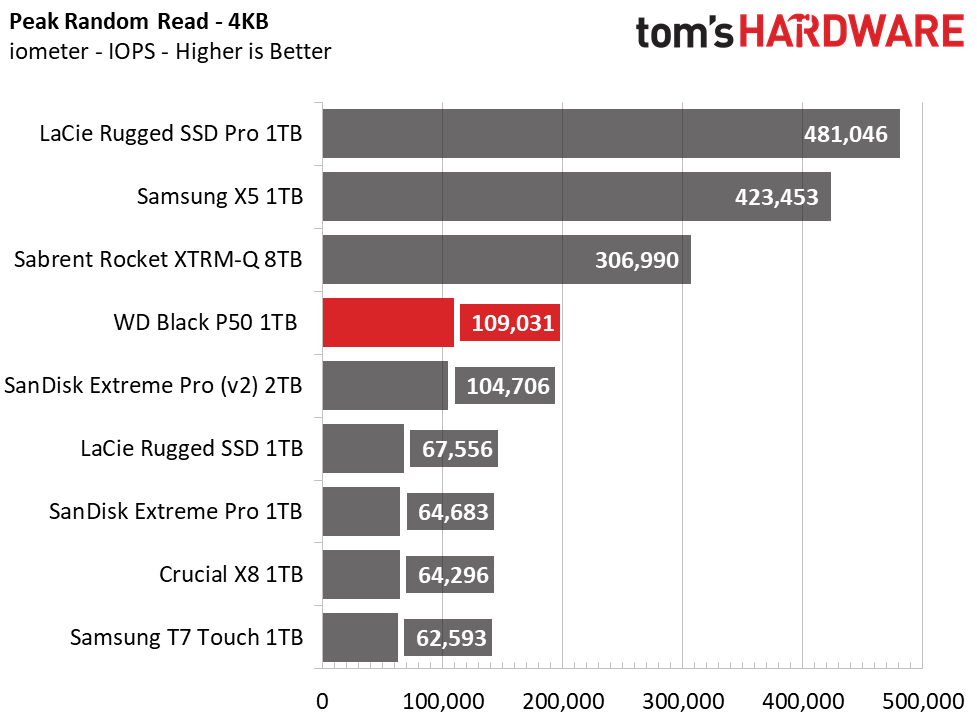
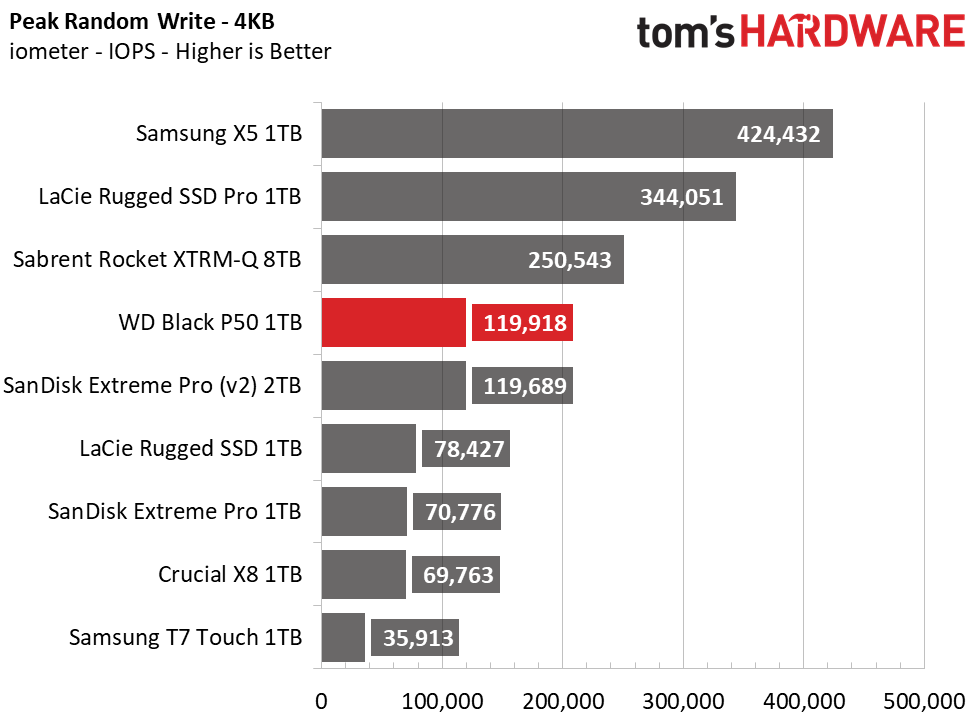
WD’s Black P50 Game Drive’s sequential performance lies in-between the 10 Gbps SSDs and the faster TB3 SSDs across smaller file sizes. When tested with a 128KB block size, the P50 Game Drive delivered strong performance that nearly doubled its 10 Gbps competition, but wasn’t quite as responsive as the SanDisk Extreme Pro v2 nor the TB3 SSDs at lower QDs. Peak random performance showed slightly faster results from the P50 Black Game Drive, however.
Sustained Write Performance, Cache Recovery, & Temperature
Write speed and temperature are two important and inter-related metrics for external devices. Official write specifications are only part of the performance picture. Most SSDs implement a write cache, which is a fast area of (usually) pseudo-SLC programmed flash that absorbs incoming data. Sustained write speeds can suffer tremendously once the workload spills outside of the cache and into the "native" TLC or QLC flash.
We use iometer to hammer the SSD with sequential writes for 15 minutes to measure both the size of the write cache and performance after the cache is saturated. We also monitor cache recovery via multiple idle rounds. We also monitor the temperature of the drive via the S.M.A.R.T. data and an IR thermometer to see when (or if) thermal throttling kicks in and how it impacts performance.
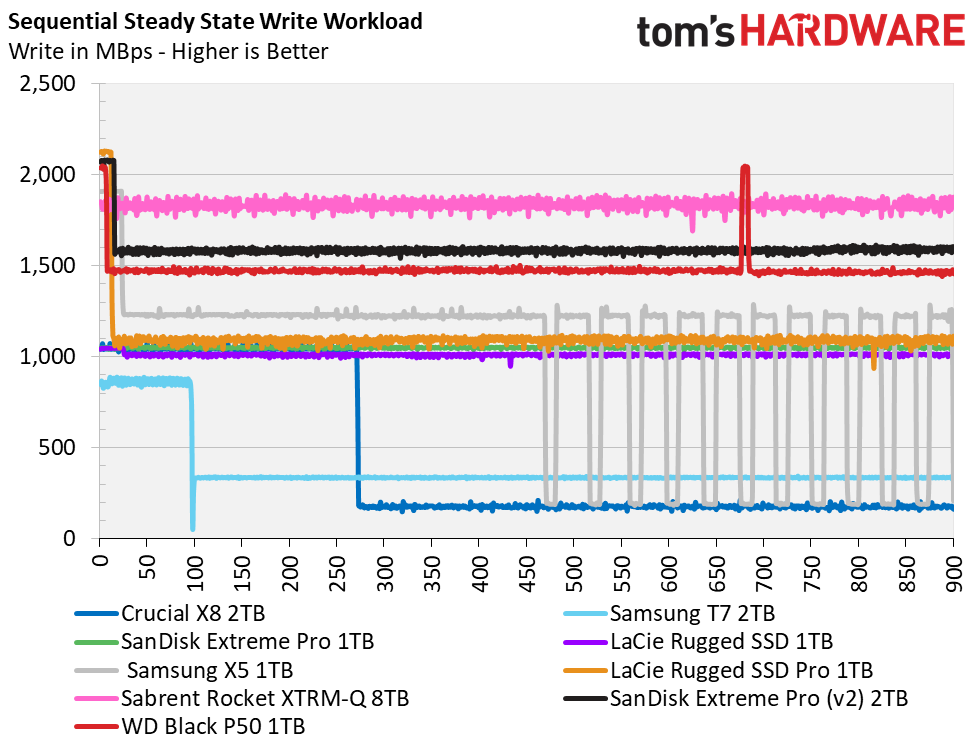
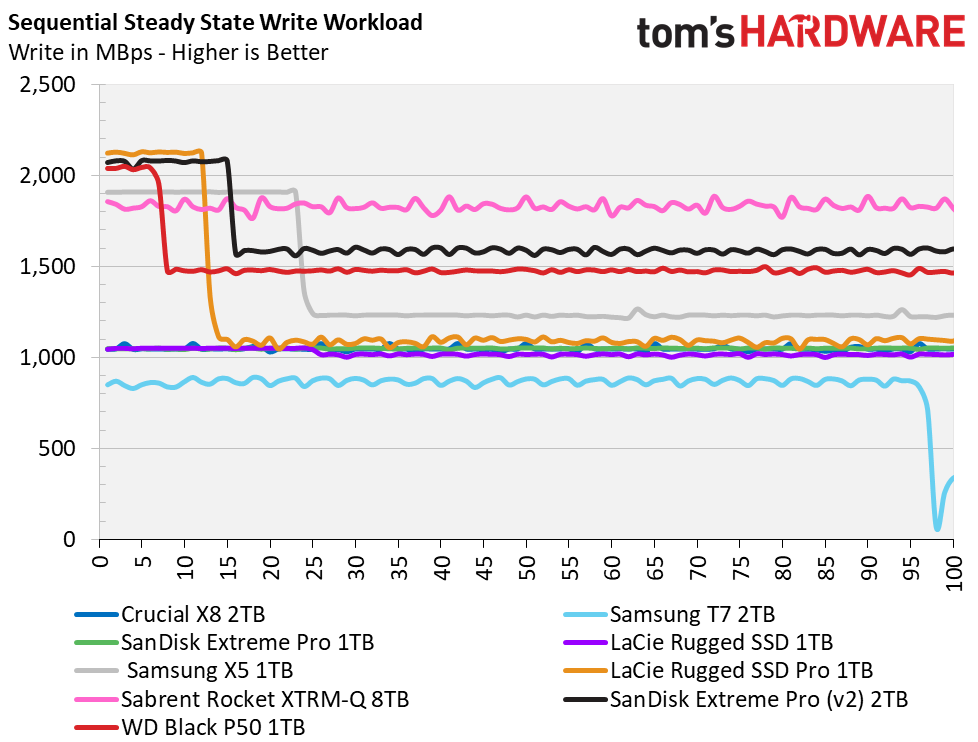
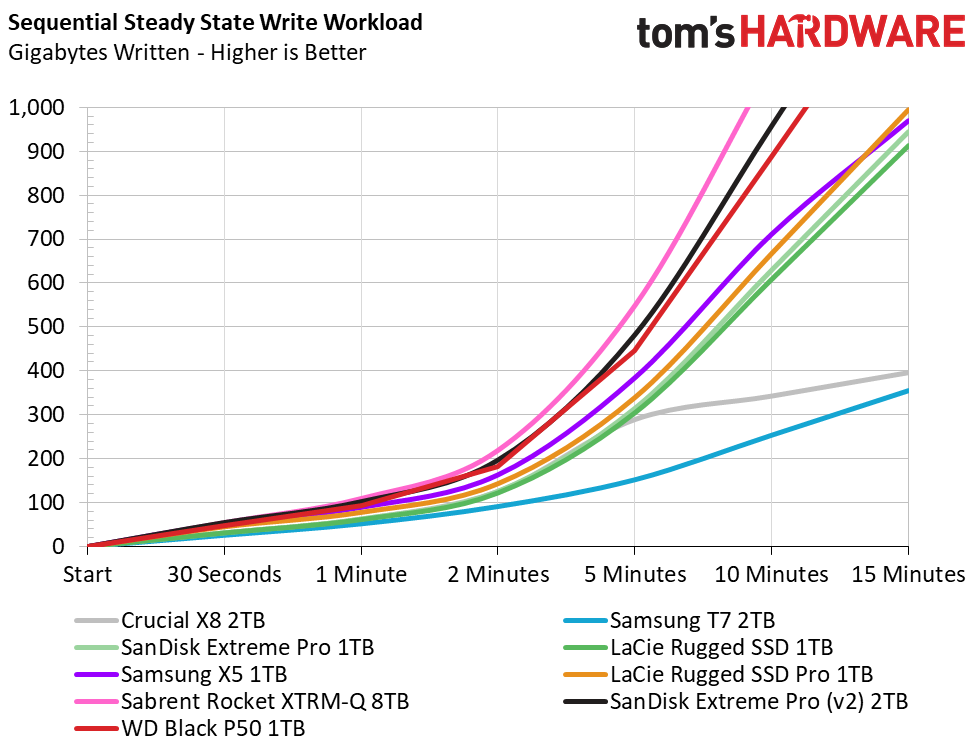
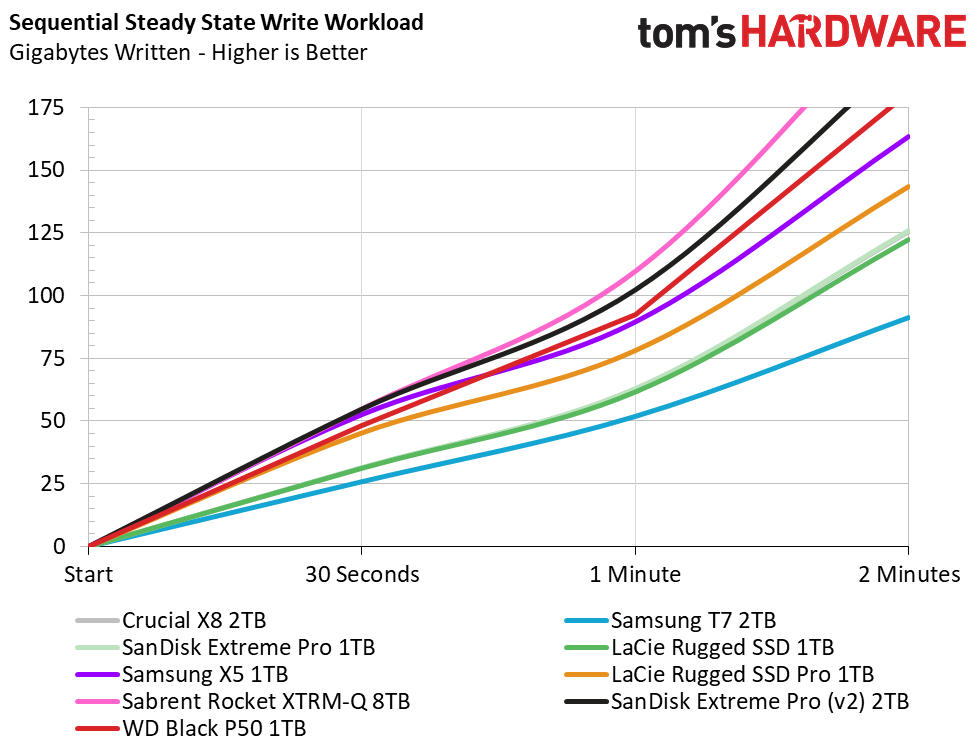
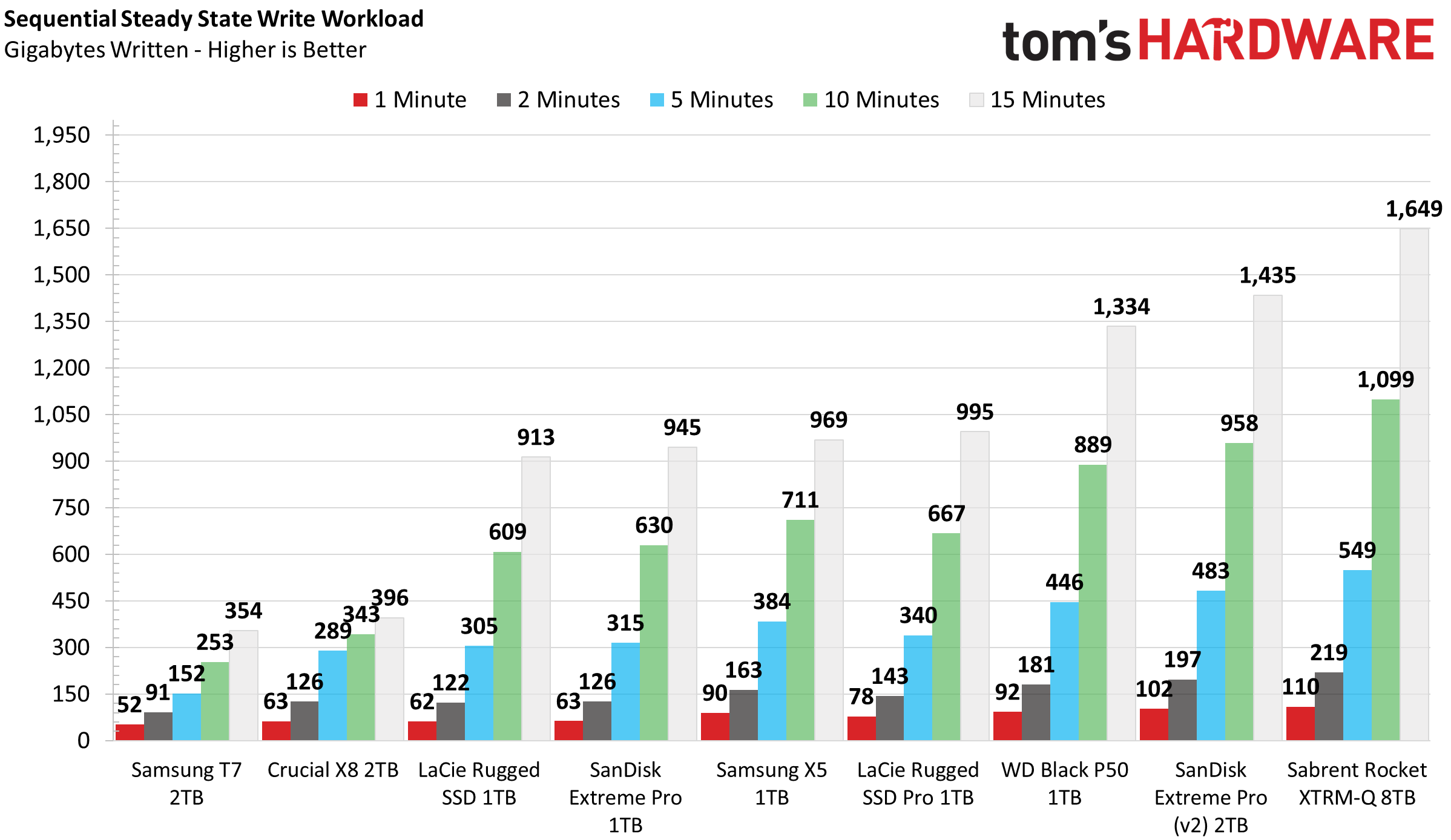
WD’s Black P50 Game Drive sustained roughly 12GB of writes at 2 GBps before its SLC cache filled. Due to its small static nature, it not only maintains solid after-cache performance that averages 1,475 MBps, but it also recovers very quickly. After resting idle for 30 seconds, the P50 Game Drive recovered its full cache capacity. SanDisk’s Extreme Pro with its WD SN730 powering it, however, maintains faster after-cache speed, averaging 1,585 MBps once degraded. Overall, the WD Black P50 is one of the fastest-writing portable NVMe SSDs we have tested.
While it runs fast, the WD Black P50 Game Drive doesn’t get too hot. After sustaining a few 100GB transfers, the surface temps of the P50 Game Drive were warm, but well within reason. The S.M.A.R.T. data reported peak temperatures of 64 degrees Celsius while the surface measured only 42 degrees Celsius.
MORE: Best SSDs
MORE: How We Test HDDs And SSDs
MORE: All SSD Content

Sean is a Contributing Editor at Tom’s Hardware US, covering storage hardware.
-
seanwebster Reply
I am too! I can't wait to get it in. Write performance is especially promising!okbud said:Mr. Webster, we are looking forward to your sn850 review... looks really promising -
AnarchoPrimitiv Replyseanwebster said:I am too! I can't wait to get it in. Write performance is especially promising!
If write speeds are your thing, then you should be even more excited about Sabrent's soon to be released (should be any day now) Rocket 4 Plus which reaches 7000MB/s sequential reads and an amazing 6850MB/s sequential writes which gives it the lead on writes out of any new PCIe 4.0 NVMe SSD, and surpasses the SN850's write speeds by 1500+ MB/s!
https://www.tomshardware.com/news/sabrent-crushes-samsung-worlds-fastest-m2-ssd-rocket-4-plus